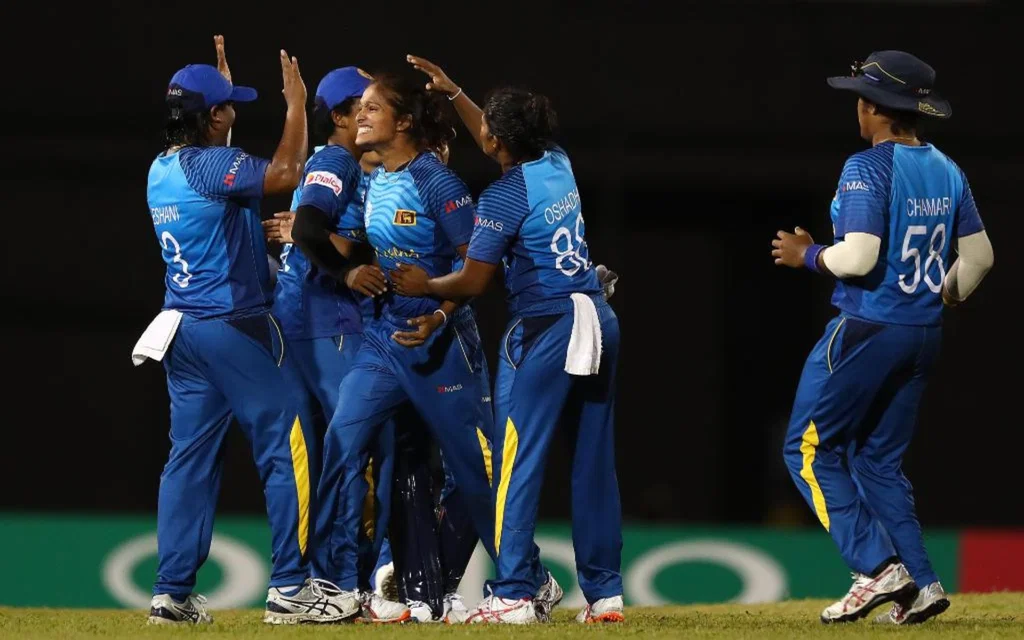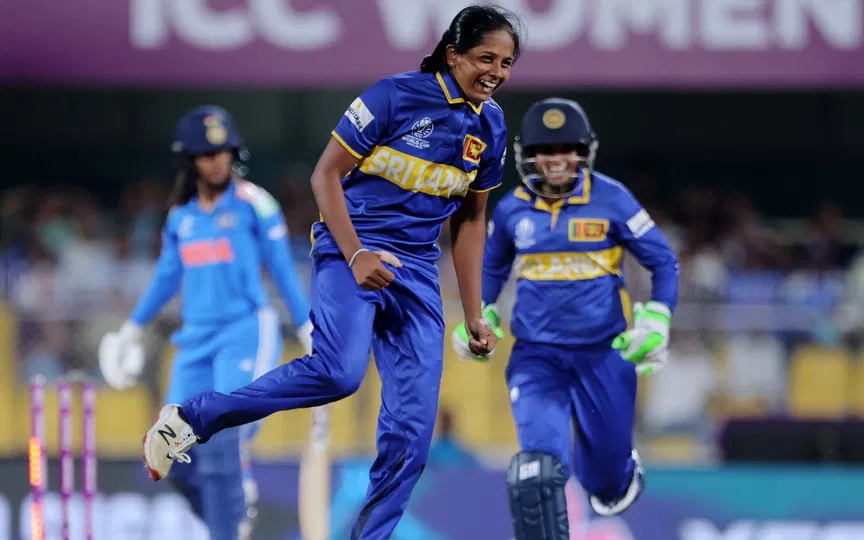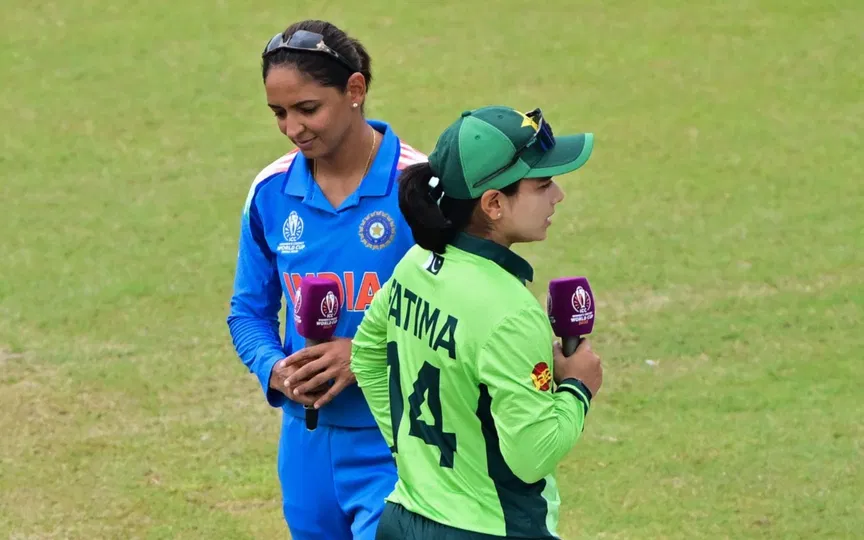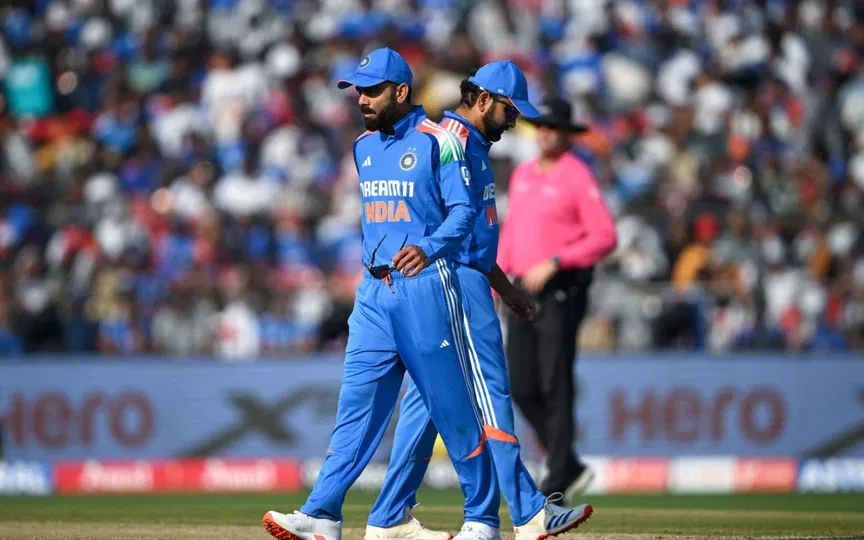 Sri Lanka Women's triumph (Source @ICCx.com)
Sri Lanka Women's triumph (Source @ICCx.com)
In the cricket world, women’s cricket arrived late with a challenge of establishing their dominance in the game's heart. While bilateral series keep fans engaged, it’s tournaments like the World Cup that create real magic, capturing global attention and leaving the cricketing world waiting with bated breath for four long years.
Cricket has often shown that latecomers can leave the biggest mark, and Sri Lanka Women are a perfect example. That was proved for Sri Lanka Women. As the Women’s World Cup was introduced in 1973, Sri Lanka Women made their way into the tournament in 1997. From that moment, the cricketing world witnessed the rise of a formidable force.
While Sri Lanka Women have produced several memorable performances, their stunning victory over England in 2013 remains a standout moment. As they are grinding hard in the ongoing edition of the Women’s World Cup, it’s time to rewind and relive that thrilling triumph that left the cricketing world in awe.
First innings sparks a fierce battle between bat and ball
Though a late bloomer in the broader cricketing world, women’s cricket was a true pioneer in the World Cup arena. While the men’s World Cup debuted in 1975, the Women’s World Cup had already taken center stage in 1973, two years earlier.
Since then, the tournament has delivered unforgettable thrills, be it a magical innings, a game-changing spell, or historic victories. Sri Lanka Women’s historic victory over England Women is still a wonder.
In the 2013 Women’s World Cup, Sri Lanka Women met England Women in their inaugural clash, without being aware that the match was going to be a historic one. As the England Women batted first, the cricket world witnessed a fierce battle between both sides.
In front of Sri Lanka’s relentless bowling attack, the England Women struggled early on, but Jenny Gunn and Amy Jones’ partnership turned the tide. On the flip side, Eshani Lokusuriyage, Chamani Seneviratna, and Shashikala Siriwardene’s bowling masterclasses restricted them to 238 runs.
Second innings sparks a flurry of drama
Chasing the total in the second innings, the Sri Lanka Women gave a thrilling start as Chamari Athapaththu and Yasoda Mendis stitched a 103-run opening partnership. While Athapaththu departed after a solid 62, Mendis narrowly missed her half-century, finishing just four runs short.
After Mendis’s dismissal, Prasadani Weerakkody joined Siriwardene, but Georgia Elwiss removed her just for one run, and that was a huge blow. Captain Siriwardene tried to steady the innings, but Elwiss struck again, sending her back after just 34 balls. As hopes for a comeback grew faint, the dismissal of Dolawatte deepened Sri Lanka Women’s troubles, leaving them in a precarious position.
Eshani Lokusuriyage steps up when it matters most
Reeling at 197/6 in the 45th over, Sri Lanka Women were a little away from glory, but Eshani Lokusuriyage stepped up to be the miracle herself. Taking on England’s fierce bowling attack with fearless determination, she refused to buckle. Even as wickets fell around her, Eshani stood tall, anchoring the innings and keeping her team’s hopes alive with every stroke.
Crafting a game-changing half-century, she played a game-changing knock of 56 runs in 41 deliveries. After her dismissal, the score leveled up, and the team needed just one run to secure the victory.
After the fifth delivery of the over turned out to be a dot, the last ball became the decider of their fate. On the last ball, Surangika held her nerve and launched Elwiss over the ropes for a thunderous six, sealing a spine-tingling one-wicket victory that echoed through cricket history.
From its early days, women’s cricket has been a story of resilience and relentless pursuit of recognition. Every opportunity was seized with grit, and every performance pushed the game closer to the respect it deserved. In cricket, no score is secured as the last ball decides the ultimate result. In the history of the Women’s World Cup, the match will be an example of how determination can turn the tables.






